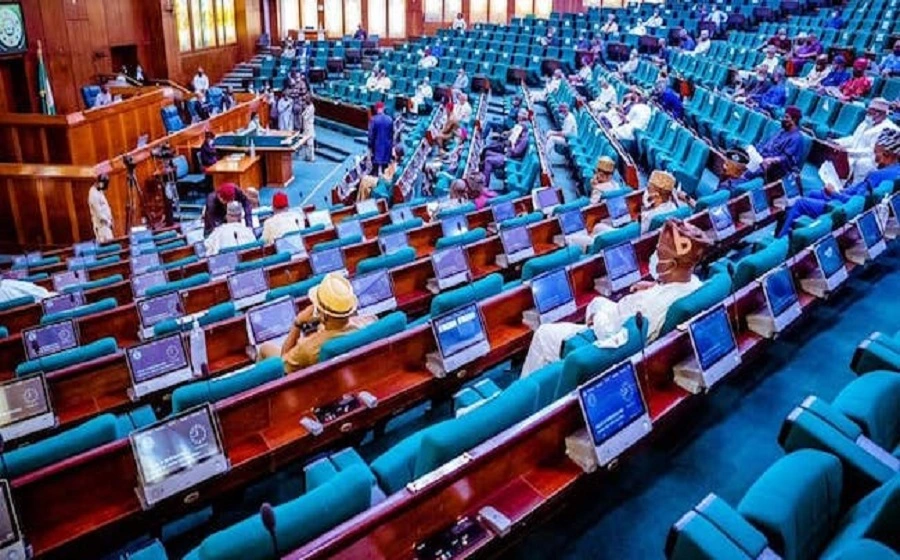The alleged non-remittance of billions of naira, which Nigerian workers contributed to the National Housing Fund (NHF) generated ripples yesterday at a hearing by the House of Representatives ad hoc Committee.
The ad-hoc committee of the House is probing alleged non-remittance and utilization of housing funds from 2011 till date.
Daily Trust reports that thousands of civil servants who have been contributing 2.5 per cent of their salaries to the fund with the aim of owning houses could not achieve their aim.
Many of them retire from service without having a shelter over their heads.
- N9.6bn ‘fraud’: Emefiele’s arraignment stalled as parties seek plea bargain
- IGP vows to restore security to in N/East, S/East
In June 2022, a non-political intergovernmental organisation, the International Human Rights Commission (IHRC), said Nigeria’s housing deficit stood at 28 million.
IHRC African Region’s Director, Dr Tivlumun Innocent Ahure, said “Indeed, Nigeria faces a severe housing deficit. Estimates by the Federal Mortgage Bank of Nigeria (FMBN) indicate a deficit of at least 28 million housing units. While the deficit cannot be addressed within the lifetime of an administration, a concerted effort at reducing it is however clearly required.
“In January 2021, the IHRC communicated to the Federal Government of Nigeria its intentions to assist millions of people that live in slums and substandard houses to have adequate housing.”
Before a recent amendment, all Nigerians in employment, whether self-employed or in paid employment, were required by the NHF Act No. 3 of 1992 to contribute 2.5% of their basic salary/income to the fund.
But the above requirement has now been altered by section 45 of the Business Facilitation Act (BFA) which in effect, amends section 4 of the NHF Act of 1992 and consequently, employees of private sector organisations are no longer mandated to contribute but can choose to contribute voluntarily.
A circular issued by the Director-General of Nigeria Employers’ Consultative Association (NECA) to all member companies titled ‘Amendment of the National Housing Fund Act and contributions into the National Housing Fund’ said only employees earning the national minimum wage and above in public sector, and self-employed individuals are required to contribute 2.5 per cent of their monthly income to the NHF.
The circular was issued sequel to the signing of the BFA 2022 by President Muhammadu Buhari in February 2022.
What transpired in the N/Assembly
During the probe yesterday, the ad hoc committee said officials involved in the NHF’s management and remittances might end up at the Kuje custodial centre. The chairman of the committee, Dachung Musa Bagos (PDP, Plateau) accused the Managing Director of FMBN, Madu Hamman, of submitting conflicting documents to the panel.
Hamman, in his presentation, had put the total amount of the NHF contributions received from Ministries, Departments and Agencies (MDAs) from 2011 till date at N238 billion; and the individuals’ contributions, N225 million.
He had also told the lawmakers that the ministerial housing scheme was N34.5 billion.
When the committee’s members complained that the N34.5 billion ministerial housing scheme was not captured in the document with them, Hamman requested the committee to adjourn and give him time to reconcile the figure.
The committee granted the request and adjourned the hearing to 11 am today.
Why workers can’t access housing funds-Minister
The Minister of Housing and Urban Development, Ahmed Dangiwa, who is the immediate past Managing Director of the FMBN, admitted that despite making the statutory contributions of 2.5 per cent of their annual salaries to the NHF, many workers were unable to access the loan owing to administrative bottlenecks.
“While the Act provides for 90 days from the date of application for the loan to disbursement, the experiences by many workers are horrific as the undue delay in approving the loans force many workers to abandon pursuit of the loan,” he said.
He said the situation forced many workers to resort to third party agencies to fast track the loan application at unofficial fees, thus creating perception of corruption in the process of housing loan approval and disbursement to workers who needed the funds.
Dangiwa said he left behind N120 billion in the coffers of the FMBN.
He said he mobilised N249.1 billion to the NHF and increased subscription to 197,000 between 2017 and 2022.
He said in spite of these milestones, millions of Nigerian workers were unable to access funds to acquire, build or renovate personal housing property.
The minister also decried that reimbursement of contributed funds to retired workers, even after failure to access housing loans, was also cumbersome.
Daily Trust reports that the FMBN was founded by the Federal Government of Nigeria in 1977 to replace the Nigerian Building Society which was founded in 1956. Between 1978 and 1985, it was the only mortgage institution in Nigeria. According to the constitution of Nigeria, the FMBN was established to meet the housing needs of all citizens of the country.
NLC threatens to pull out of NHF
The Nigeria Labour Congress (NLC), in its presentation, vowed to pull out civil servants from the NHF contributory funds over alleged non-remittances of deductions made from workers.
NLC President, Joe Ajaero, told the investigative hearing panel that the FMBN had failed to send alerts to civil servants on how much they had been contributing, including their monthly deductions.
He asked the committee to take drastic steps to remove the encumbrances to affordable and quality housing to millions of Nigerians, especially workers who make the most contributions to the NHF.
We’ll review NHF Act – Speaker Abbas
Earlier, the speaker of the House of Representatives, Tajudeen Abbas, who declared the hearing open, had described the NHF Act of 1992 as already obsolete, saying it needed a review to be in tandem with current realities in order to meet the housing needs of the citizens.
Abbas, who was represented by Deputy Speaker Benjamin Okezie Kalu, noted that the NHF represents a commitment to addressing one of the most fundamental needs of the citizens, which is affordable housing.
According to him, to achieve the objective of providing affordable housing to Nigerians, there is a need for the NHF to be managed transparently and efficiently.
“The allegations of non-remittance are grievous, and we must uncover the truth in order to hold those responsible accountable, and safeguard the interests of those who have diligently contributed to this Fund.
“As the investigative hearing commences, let us be guided by principles of fairness, equity and diligence. Our mission is not only to uncover any irregularities, but also to propose solutions that will strengthen the NHF and ensure it serves its intended purpose, while also preventing a reoccurrence of these issues,” he said.
He charged members of the committee to be thorough and diligent in their assignment to ensure they uncover the truth.
In his opening remarks, the chairman of the committee, Bagos said, “Despite the efforts by successive governments, housing deficit in Nigeria is still high with contributors to the scheme still don’t have a roof on their heads, more so that the process of applying for the facility is stringent.
“As legislators, we are resolved to do due diligence to unravel any setback and to ensure that an average Nigerian worker and contributors benefits from the scheme.”
He assured that the committee would be fair and transparent in the discharge of the assignment, urging all stakeholders to cooperate with the panel to enable it to discharge its assignment.

 Join Daily Trust WhatsApp Community For Quick Access To News and Happenings Around You.
Join Daily Trust WhatsApp Community For Quick Access To News and Happenings Around You.


